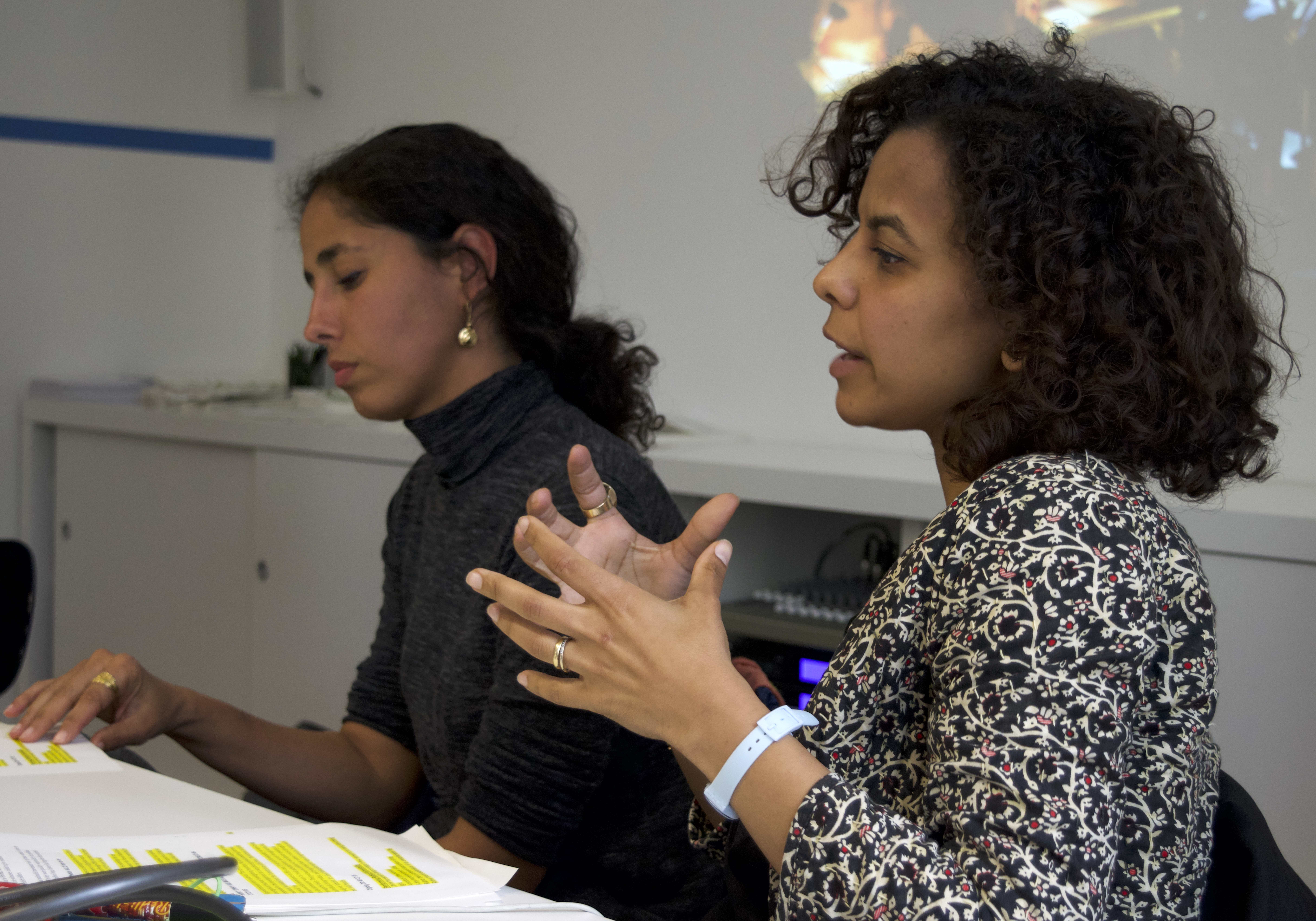What is a revolutionary archive? From hand-scribbled protest songs in colonial police archives in London, to magazines and newspaper articles from Cairo's Azbakiyya markets, rusty LPs with tunes by rebellious divas stored in Beirut, and investigations into rape testimonies by the brave women of the village of Nazlet el shubak. In this talk Laila Soliman discusses her experience of patching together archives of the forgotten uprisings of 1917-1919, the years leading up to the iconic 1919 revolution in Egypt.
Breathing Life into the Archive: Egyptian Revolutionary History on the Theatre Stage
Laila Soliman (Cairo) in conversation with Alia Mossallam (AUC / EUME Fellow 2017/18), Chair: Cilja Harders (FU Berlin)
Forum Transregionale Studien, Wallotstr. 14, 14193 Berlin

How can stories be told despite archival absences, weaved out of truncated events, and characters revived out of stories seldomly told? How can a theatre piece reflect on historical gaps, questioning the silence, rather than overwriting it? Through this discussion about her theatre practice Soliman highlights the experiences behind Hawwa al-Hurreyya (2014) and ZigZig (2016) - taking us on a journey from the archive to the stage.
Laila Soliman is an independent Egyptian theatre director and playwright, living and working in Cairo. She studied at the German School and the American University in Cairo and obtained her MA in theater at Dasarts (AHK) in Amsterdam. Her works have been mainly shown in Egypt, Tunisia, Lebanon, Syria and in Europe. Amongst her most important works are The Retreating World (2004), Ghorba, images of alienation (2006), …At your service! (2009), Spring Awakening in the Tuktuk (2010), Lessons in Revolting (2011), Here, There & Everywhere (2013), No Time for Art 0/1/2/3 (2011-2013), Hawwa al-Hurreyya, Whims of Freedom (2014), La Grande Maison (2015), The National Museum of the State Security System (2015), Zigzig (2016), Superheroes (2017). Her play Egyptian Products (2009) was published in the anthology Plays from the Arab World by Nick Hern Books and the Royal Court Theatre, London. Her performance texts A Diary in Scenes: And don't forget never to wear tampons at a revolution! (April 2011) and No Desert Roses (December 2017) were published in Theater der Zeit Magazine.
Alia Mossallam is interested in songs that tell stories, and stories that tell of lesser known struggles and moments of popular mobilization behind better known events that mark World History. Her PhD dissertation explored a popular history of Nasserist Egypt through stories told and songs sung by people who contributed to milestone events of the 1952 revolution (the building of the Aswan High Dam, and the 1956 and 1967 wars). She has taught at the American University in Cairo (AUC), the Cairo Institute for Liberal Arts and Sciences (CILAS), Freie Universität Berlin (FU) and held a series of history workshops ‘Ihky ya Tarikh’ with students, activists and artists in governorates all over Egypt, as an experiment in history-telling. She has also explored playwriting with Laila Soliman and Hassan El-Geretly as attempts to bring stories (and songs) of struggle unto the stage.
Her publications include an article on youth activism in the volume Democratic Transition in the Middle East, a workers’ history of the Aswan High dam in the Journal of Water History, and an article on history workshops in Egypt in the History Workshop Journal. She has also written for Mada Masr, Jadaliyya and Ma'azif. In 2017 and 2018, Mossallam is a EUME-FU Fellow of the Alexander von Humboldt Foundation, where she is working on a book on a popular history of the building of the Aswan High Dam, and starting a new project on the experience of the Egyptian Labour corps in World War I – mainly through songs, theatrics and cultural articulations of their experience on the home and war fronts.
